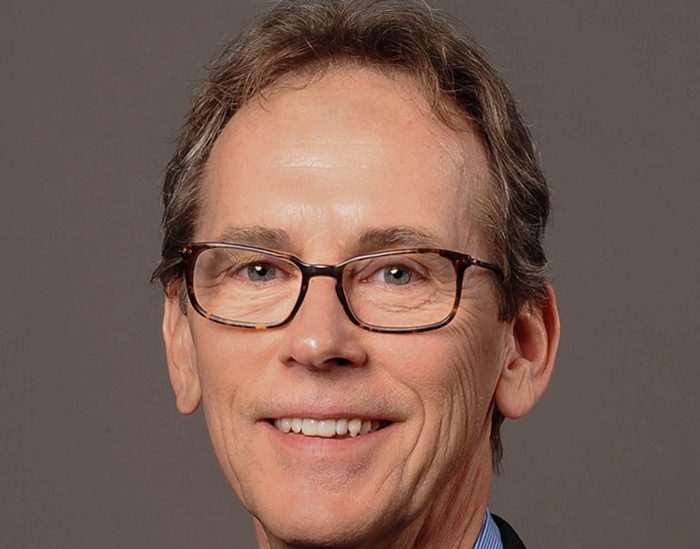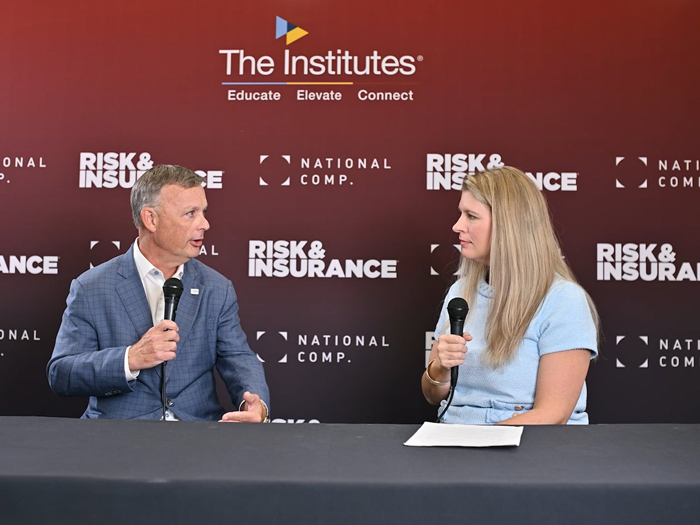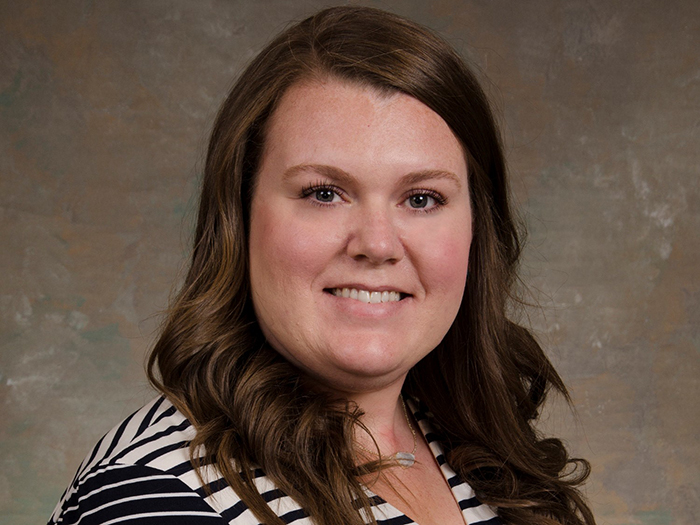This Chief Medical Officer Details the Life-Changing Impact Occupational Health Has on Injured Workers

If you ask someone on the street which medical field is the most challenging, they will probably answer brain surgery. The field is so notoriously difficult that “it’s not brain surgery” has become a cliched reference point for any demanding task.
But Dr. John Anderson wants young clinicians-in-training to know that there is another field of specialty that can be as rewarding, engaging and, yes, even as draining as brain surgery: occupational health.
“When our colleagues recognize the real value their work has for the individual and for society, they achieve a level of professional gratification that is needed to continue doing this work, which can be emotionally draining,” Anderson said.
Like many people working in insurance-related fields, Anderson didn’t expect to take on his role as an occupational health physician.
He and his family practice partner found themselves becoming attracted to the field after learning that their slowly growing practice was in the center of an industrial corridor — a prime location for doctors working to help patients with workplace related injuries and illnesses.
“We were approached by our landlord to consider opening an ‘industrial clinic’ in an existing space that he had. We did our homework, and made the leap to open our first occupational health center in 1979,” Anderson said.
Their clinic grew quickly and Anderson soon realized that occupational health aligned with his other medical interests by allowing him to treat patients suffering from a range of ailments.
“We were managing not only injuries, but also illnesses related to exposures to numerous chemicals used in local tool and die and manufacturing industries in our area. I soon learned that there was specialty certification in occupational medicine, which I’d never heard of at any time in my training or work experience.
“As my exposure to the specialty grew, I realized that it aligned to my medical interests and I began to pursue board certification,” he said.
Now, with 35 years of occupational health experience under his belt, Anderson serves as chief medical officer at Concentra, a national occupational health care clinic that serves 44 states.
In this role, he is responsible for overseeing more than 1,200 clinicians and directs the delivery of medical care throughout the entire organization. His passion for helping injured workers get back on the job, however, is still as strong as ever.
“What I’ve always been excited by is the ongoing opportunity, shared by all our colleagues, related to enabling our patients to safely return to their lives and careers following a work-related injury or illness, and maneuvering them away from the hidden risks associated with needless disability,” he said.
According to Anderson, the importance of timing in treating work-related injuries is one of the reasons the field can be so mentally and emotionally challenging. This is especially true of cases where a patient’s recovery is delayed.
Read More: 10 Reasons Why Insurance and Risk Management Is a Great Career
One of the biggest hurdles Anderson had to overcome in his career was the fact that he did not have a lot of guidance in the field of occupational health. He and his partners had to work together to educate themselves so that they could offer the best possible treatment for their patients.
“My partners and I worked through every challenge and issue by doing research, reading extensively, and pursuing formal training at AOA and AMA-sponsored courses through their respective preventive medicine/occupational health specialty groups,” he said.
He dove into the opportunity to learn more about the field once he started pursuing board certification, a process that currently takes about two years of study and 16 hours of fieldwork, according to the Bureau of Labor statistics.
“Once I began formally pursuing board certification, the requirements to achieve eligibility provided me with exhaustive materials for learning,” Anderson said.
Even though Anderson reports that he “had no true mentor in this specialty,” he wants to help young clinicians become interested in occupational health as a career.
“The need for clinicians who can provide best in class care for our country’s workforce is growing, and this presents real recruiting and retention challenges,” he said.
“I believe the most important message for medical clinicians in training is that the practice of occupational medicine allows them to use every clinical skill they have learned to keep individual patients on track with their respective careers, and America’s workforce healthy and productive.”
This focus on cultivating a passion for occupational health in young clinicians has made his role overseeing clinicians at Concentra one of his proudest accomplishments.
“I am really pleased to have played a role in growing our practice and providing new clinicians access to the training and tools that enhances their skills in this specialty, and supports consistently great clinical outcomes for our patients,” he said
He hopes that other people will realize that, at its best, occupational health is a career where they can help both workers and employers succeed.
“We do a great job of providing the best care for our patients that results in great medical outcomes and short case duration at the lowest cost per case,” he said. “When we do this, every stakeholder wins… patient, employer and payer.” &










